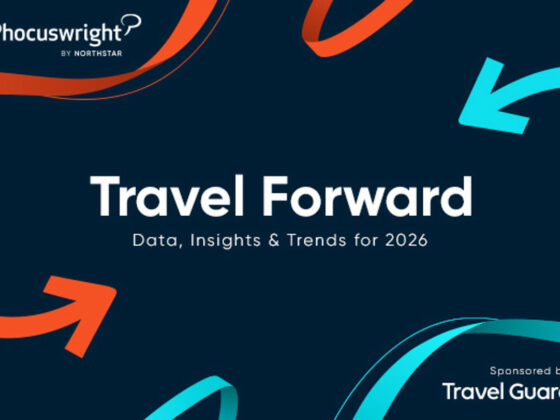Reviews may serve as the new “trust badge” distinguishing genuine guest experiences from SEO-driven marketing noise. AI-powered hotel discovery is reshaping the way travelers search, evaluate, and ultimately book accommodations. Due to generative AI and large language models (LLMs) drawing from multiple data sources, guest reviews have emerged as the most reliable source of truth. They are not just influencing human decision-making but actively shaping what AI presents to potential travelers. Hotels that master the art of review-driven content, reputation management, and SEO optimization will secure long-term visibility in the age of AI-powered hotel discovery.
Takeaways
Authenticity wins: Hotels that align their marketing with guest reality will rise above their competitors.
Reviews are the new SEO fuel: Guest reviews will likely serve as data that AI trusts to verify marketing claims on hotel websites.
AI Overviews dominate search visibility: Already in 13% of queries, they represent the new SEO battleground.
Detailed reviews will matter most: Attribute-rich, story-driven reviews improve AI indexing.
Online Reputation Management Systems are essential: ORM tools streamline monitoring, analysis, and rapid and detailed responses.
Why AI changed the game for hotel discovery
Generative AI has shifted the search paradigm. Instead of delivering long lists of links, platforms like Google’s AI Overviews, Microsoft’s Copilot, and AI-first platforms such as ChatGPT, Perplexity, and Claude generate summarized answers designed to be trusted, human-like recommendations. According to Semrush, AI Overviews already account for 13% of all search queries in 2025, a percentage that is steadily climbing. This means millions of travelers are already interacting with AI-generated summaries rather than traditional organic listings.
AI models aggregate data from a variety of sources: hotel websites, online travel agencies (OTAs), review platforms like TripAdvisor, Google Reviews, Booking.com, and even social media. But not all data is weighted equally. Steve Collins, VP of Digital Marketing at SHR Group, noted on a recent LinkedIn post: “Google reviews are without doubt the most consistent signal being displayed when we are testing generic threads in AI Mode.”
The implications are significant. Traditional SEO tactics, keywords, backlinks, and meta descriptions still matter but no longer dominate. Trust, consistency, and authenticity are now the metrics AI uses to determine ranking. For hotels, this means that marketing copy alone cannot secure visibility. Instead, alignment between claims and guest reviews becomes the differentiator between ranking and invisibility.
Reviews are the new SEO fuel in AI search
Guest reviews provide the granular, contextual data AI systems crave. Unlike hotel websites that often present polished, generalized claims, reviews highlight specific experiences that resonate with traveler intent. A guest writing, “Perfect for families with young children, quiet courtyard, and close to the metro,” gives AI exactly the kind of structured signal needed to answer queries like “family-friendly hotel in Paris with easy metro access.”
Reviews as Structured Data
Research from Valueleaf confirms that AI search engines are already using reviews to personalize and contextualize recommendations. In the same LinkedIn thread, Peter Kalanda highlighted: “Authentic guest feedback is basically free structured data for AI to work with, and hotels that embrace this early will be ahead of the curve.”
Adjunct Professor at NYU, Max Starkov, commented: “LLMs trust social media posts and customer reviews more than hotel websites. AI Search bots pull only 25% of answers from hotel website content. The rest comes from reviews, blogs, and publicly available information.” For hoteliers, this means that guest reviews, social mentions, and third-party content have more impact on AI-driven visibility than their own websites.
This democratizes hotel marketing but also raises the stakes. Hotels can no longer rely solely on marketing narratives; their guests’ words now define their AI reputation.


Aligning marketing copy with guest feedback
The central challenge is alignment between what hotels say and what guests confirm. Pedro Colaco, CEO of GuestCentric, also commented on the thread, “If your website says ‘sea views’ and reviews confirm it, the site gains credibility as a trusted source. If copy and reviews diverge, the claim weakens.”
Authenticity is no longer optional. Mariya Donat of Hyatt Hotels explained: “Hotels that align authentic guest feedback with their brand story won’t just build trust, they’ll future-proof their visibility in AI-driven discovery.” Conversely, Maria Corpas Sánchez added: “Hotels will have to invest in genuine copy. Not poetry, not empty buzzwords. Because if AI can’t figure out what a hotel is actually offering, the chances of it recommending that hotel drop to almost zero.”
This illustrates the end of the “poetic copy” era. Phrases like “luxurious retreat” or “unforgettable experience” no longer carry weight unless reviews substantiate them. AI cross-checking means reality trumps rhetoric.
How hotels can encourage review-driven AI visibility
Detailed, attribute-rich reviews are the foundation of AI-driven discovery. Martin Soler urges hotels to encourage longer reviews filled with specifics about amenities, anecdotes that discuss services and features, and mentions of particular attributes. Bullet points, stories, and small details provide the contextual richness that LLMs index.
How-to strategies to encourage detailed reviews include:
- Train staff to request reviews naturally: For example, reception staff can encourage feedback about specific features (“We’d love to hear what you thought about the courtyard garden.”)
- Respond thoughtfully to existing reviews to show guests that detailed feedback is valued.
- Highlight how guest feedback drives real improvements, which motivates more descriptive comments.
Erik Leenaars emphasized that hotel responses are equally important. Instead of simply thanking guests, responses should reinforce specific attributes: “We’re delighted you enjoyed our quiet courtyard; many guests highlight this hidden retreat in the city.” This approach strengthens the AI-readable data set while enhancing guest relationships.
Leverage online reputation management to stay ahead
A modern Online Reputation Management system (ORM) is essential for managing reviews at scale. These systems aggregate reviews from multiple platforms, analyze guest sentiment, and help hoteliers craft strategic responses, often accelerating replies with AI-assisted replies.
Optimize your content for AI and SEO tools
While reviews dominate, SEO still provides the framework that ensures AI understands your content. Tools like Semrush and Ahrefs remain critical for keyword tracking, competitor benchmarking, and content audits.
SEO steps for hotels in the AI era include:
While there is no definitive playbook yet for AI-driven SEO, several experts have shared actionable recommendations. As Max Starkov noted in the LinkedIn discussion on AI discovery, “Hoteliers must invest in content marketing to ‘earn recognition’ on the LLM platforms via citations… and invest in Online Reputation Management (ORM) technology.” Building on his advice, hotels can focus on the following steps:
- Target long-tail, conversational queries: Example: “Which hotels in Rome are close to the Colosseum and family-friendly?”
- Implement structured data markup: Use schema.org to highlight amenities, services, reviews, and FAQs.
- Ensure listing consistency: NAP (name, address, phone number) must be identical across platforms.
- Create FAQ pages: Write answers in natural, conversational language to capture AI-style queries.
- Update content frequently: AI favors fresh, relevant, and regularly maintained data.
This hybrid approach, combining structured content with authentic reviews, maximizes visibility in both traditional and AI-driven search.


Guard against abuse: Avoid fake reviews
The temptation to create fake reviews is real, but the risks are enormous. The U.S. FTC has banned AI-generated fake reviews, and AI tools are increasingly skilled at detecting fabricated feedback. Manipulated reviews may provide a temporary boost, but once detected, credibility collapses.
As María Corpas Sánchez commented: “If AI can’t figure out what a hotel is actually offering, the chances of it recommending that hotel drop to almost zero.” The path forward is clear: quality and authenticity always outweigh volume and manipulation.
Expert Perspective: The Fundamentals Still Matter
While much of the discussion on AI SEO for hotels is speculative, seasoned experts emphasize the importance of staying grounded. As Sebastien Félix from Influence Society notes: “The biggest risk isn’t that SEO disappears. It’s that people waste time reinventing things that don’t need to be reinvented. The fundamentals still win.”
For hotels, this means continuing to prioritize the basics, clear website structure, consistent business listings, accurate metadata, and mobile optimization. These elements form a reliable foundation upon which AI search will be built. Even as algorithms evolve, the fundamentals remain the starting point for success.
Final words
AI-powered hotel discovery represents a fundamental shift. Reviews now serve as structured datasets that determine visibility in AI search. Hotels must encourage detailed, authentic reviews, align their marketing promises with guest experiences, and leverage reputation management systems to actively shape their online presence.Max Starkov says it best in the LinkedIn thread: “Hoteliers must a) invest in content marketing to ‘earn recognition’ on the LLM platforms via citations and b) invest in Online Reputation Management (ORM) technology. Hotels must also reply to reviews promptly and thoughtfully, as these responses become part of the structured content AI evaluates.” By focusing on authenticity, alignment, and proactive review management, hotels can thrive in this new AI-driven marketplace.







